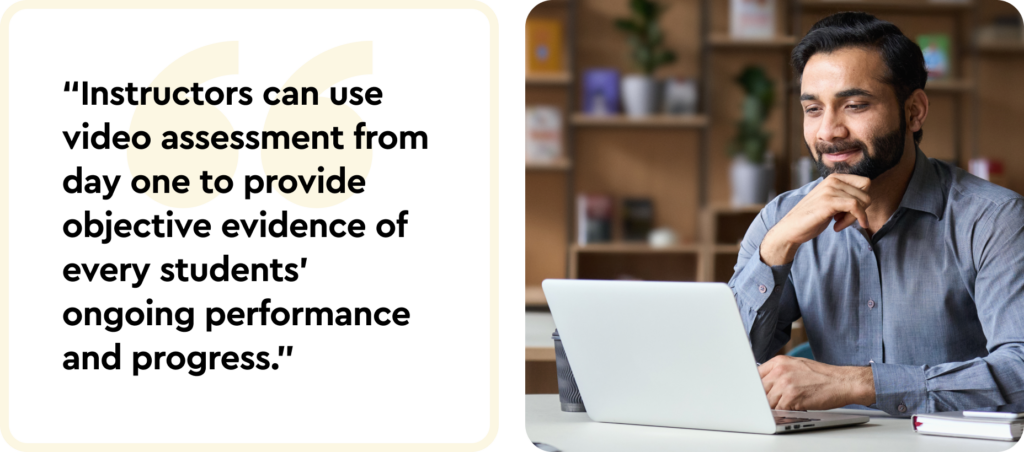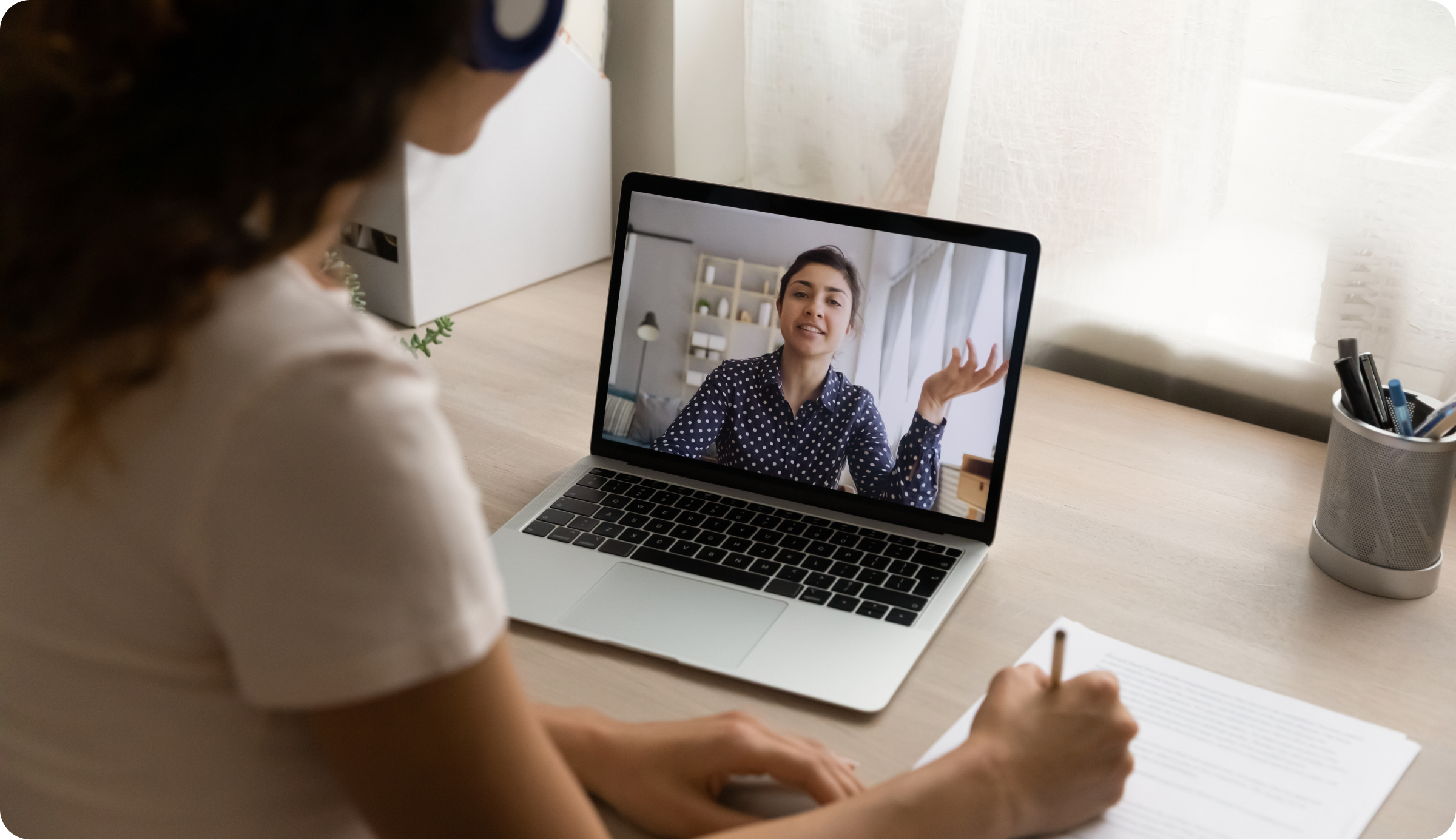Universities face increasing demand from employers and students to better prepare graduates for the workforce. As a result, technology and online pedagogy are evolving to better support skills-based learning.
An example of how many institutions are improving skill development in every modality is through video assessment. Although video isn’t new to education, its applications continue to evolve, creating new ways for instructors to personalise learning, and new ways for students to master skills.
One of the most effective uses of video for skill development is reflective practice. As an inherently reflective tool, video gives students the opportunity to go beyond marks and final exams with an unbiased view of their own performance and progress.
The role of self-reflection in skill development
Most students are introduced to new skills through passive learning activities such as attending lectures, reading articles or watching instructional videos.
Once they have a grasp of theory and process, they engage in active learning. This includes practising and demonstrating new skills in class, at home or in a clinical environment as part of a simulation or practical work experience.
Finally, their skills are assessed by instructors, mentors or peer reviewers—and here’s where self-reflection takes centre stage. It’s an effective strategy for boosting learner confidence and competence because:
- Reflective practice increases ownership of learning. Students who take time to analyse the learning process are more invested in outcomes, and have greater control of their academic and professional success.
- Reflective learners are more likely to value and apply critical feedback. Being aware of their strengths and weaknesses increases students’ willingness to accept critiques and strive for improvement.
- Reflection puts the focus on skills learned, not on points earned. When students evaluate not only what they learned but how they learned it, they’re better equipped to learn new skills in the future.
How video assessment deepens self-reflection
Whereas instructional videos support skill development by increasing students’ foundational knowledge, video assessment shifts the use of video from a means of transmission to a means of participation. Rather than consuming video content, students are actively engaged in practising and mastering skills.

Video also enables students to watch and rewatch their own performances as they reflect on their growth throughout the term. Instructors in disciplines from foreign languages and business communications to teacher training and nursing education, use video assessment to encourage ongoing reflection because:
- Video creates engaging opportunities for peer review. Assessing and giving feedback to peers requires students to reflect on their instructors’ expectations and assessment criteria. It also increases the quantity and diversity of feedback each student receives on their performance.
- Video is perfect for multimodal feedback. Using video assessment software such as GoReact, instructors and peer reviewers can give time-coded text, audio and video feedback, for contextual critiques that do more to help students reflect on their skills.
- Video supports interactive self-assessment. Students can watch and assess their own videos with the same multimodal feedback tools used by instructors and peer reviewers. Or they can complete self-assessments by recording videos of themselves responding to prompts about their learning experience.
Active learning, active reflection
Although reflective practice is especially powerful at the end of the semester when knowledge, experience and feedback come together to heighten metacognition (one’s awareness and understanding of their own thought processes), it can be incorporated at any stage of learning.
Rather than simply assigning students to reflect on their skill development through an end-of-semester questionnaire or essay, instructors can use video assessment from day one to provide objective evidence of every student’s ongoing performance and progress.
For students learning hands-on skills, it makes sense to take a more active approach to self-reflection. And because video doesn’t lie, the experience of watching and evaluating their own videos makes reflective practice a means by which students can actively learn and improve their skills.
Let’s chat about how GoReact supports skill development through video assessment, self reflection and active learning.







